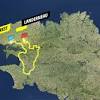Authentic Wins 2020 Kentucky Derby

No one really expected a horse race.
The 146th running of the Kentucky Derby was supposed to be either a coronation for a colt named Tiz the Law, who was headed for a credible Triple Crown bid, or overshadowed by protests over racism and police violence in Louisville and beyond, with the sheer anxiety over the coronavirus pandemic ever present.
Instead, Tiz the Law, a colt that became sort of a symbol for everyday folks, with his workmanlike performances in winning six of seven races in this upended Triple Crown season, was beaten by a colt named Authentic.
It’s that simple.
With Manny Franco in the saddle, Tiz the Law squared his shoulders and turned for home but came up a length and quarter short of Authentic, who basically led every step of the way.
There was no roar of the crowd. Because of the pandemic, the grandstand was devoid of the more than 150,000 people who normally would have attended.
But Authentic’s victory gave the Hall of Fame jockey John Velazquez his third Kentucky Derby win. He won the 2011 edition with Animal Kingdom and repeated in 2017 with Always Dreaming. The victory gave Velazquez his 200th Grade I victory, making him only the third rider in history to reach that milestone.
“I want to cry,” he said shortly after crossing the finish line.
As he spoke, protests over racial injustice outside the track faded; they were peaceful despite moments of tension.
Before the race began, hundreds of people calling for racial justice circled Churchill Downs, and several members of a Black armed militia knelt in front of Louisville police officers stationed inside a fence erected around the track. An airplane flew over the track with a banner that said “Arrest the cops who killed Breonna Taylor,” referring to the unarmed Black woman who was shot in her home by the Louisville police in March and who has become a focal point of the Black Lives Matter movement.

Derby day was the 101st day of protests in the city over the death of Taylor, a 26-year-old emergency room technician who was shot and killed in her home by detectives serving a “no-knock” warrant. As the race began, hundreds of protesters lined the chain link fence on the track perimeter, shouting at dozens of police officers equipped with riot gear.
After the race, the protesters left Churchill Downs and continued to march.
Such was the tension and symbolism in an afternoon of racing. The steady roar of law enforcement helicopters was no substitute for the crowds — men with pockets squares and women in fancy hats — who normally descend on this little patch of horse racing heaven to celebrate some aspects of the Old South.
Churchill Downs was docile enough to put its common and most familiar foot forward for America’s most famous race.
With Authentic, the trainer Bob Baffert won his sixth Derby and tied Ben Jones for the most victories in the race’s history. He did so after another of his horses, Thousand Words, acted up before the race and was scratched by racetrack veterinarians.
But the fact that Baffert is a Hall of Famer, one who was recently suspended by the Arkansas Racing Commission for 15 days and who vacated the victories of two of his horses after they tested positive for a banned substance, puts the seamier side of horse racing in the spotlight once more.
Baffert was emotional in victory, shedding tears in post-race interviews not only for Thousand Words’s thwarted Derby start but for his longtime assistant Jimmy Barnes, who injured his hand while trying to settle Thousand Words.
“I just wish Jimmy was here with me — he’s one of the greatest assistants of all time, and if there was a Hall of Fame for assistant trainers, he’d be in it,” he said.
But Baffert has also caught the attention of regulators over the years. The Arkansas violations were his 26th and 27th drug violations, according to public records compiled by the Association of Racetrack Commissioners International and the Thoroughbred Regulatory Rulings database maintained by the Jockey Club.
In addition, the Baffert-trained Justify failed a drug test after winning the Santa Anita Derby, nearly a month before the 2018 Kentucky Derby. Justify wound up winning the Derby, the Preakness and the Belmont that year for the Triple Crown.
The rule on the books when Justify failed the test required that the horse be disqualified, forfeiting both his prize money from the Santa Anita Derby and his entry into the Kentucky Derby.
California racing officials investigated the failed test for four months, allowing Justify to keep competing long enough to win the Triple Crown. In August, after Justify’s breeding rights had been sold for $60 million, the California Horse Racing Board — whose chairman at the time, Chuck Winner, had employed Baffert to train his horses — disposed of the inquiry in a rare closed-door session.
The board ruled that Justify’s positive test for the banned drug scopolamine had been the result of “environmental contamination,” not intentional doping. Baffert has denied any wrongdoing.
California regulators, after a lawsuit from Mick Ruis, the owner of the second-place horse in the Santa Anita Derby, have agreed to hold a hearing this month on whether his colt, Bolt d’Oro, should be declared the winner and awarded the $600,000 first-place check.
Ryland Barton contributed from Louisville.


 United States
United States Argentina
Argentina  Australia
Australia  Austria
Austria  Brazil
Brazil  Canada
Canada  Chile
Chile  Czechia
Czechia  France
France  Germany
Germany  Greece
Greece  Italy
Italy  Mexico
Mexico  New Zealand
New Zealand  Nigeria
Nigeria  Norway
Norway  Poland
Poland  Portugal
Portugal  Sweden
Sweden  Switzerland
Switzerland  United Kingdom
United Kingdom 




